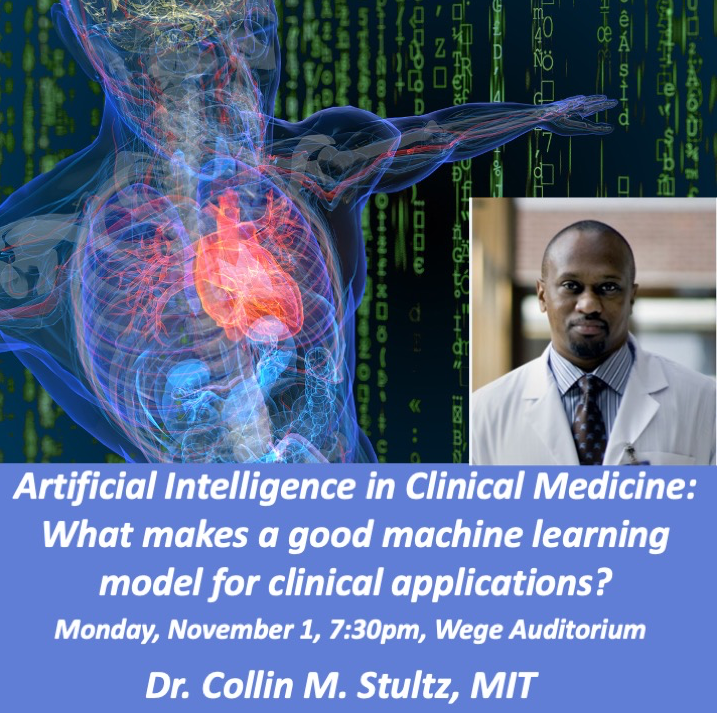
Artificial Intelligence in Clinical Medicine by Collin M. Stultz MD+PhD, MIT+PBK Visiting Scholar
Mon, November 1st, 2021
7:30 pm - 9:00 pm
- This event has passed.

Collin M. Stultz is the Nina T. and Robert H. Rubin Professor in Medical Engineering and Science at MIT, a Professor of Electrical Engineering and Computer Science also at MIT, a faculty member in the Harvard-MIT Division of Health Sciences and Technology, and a cardiologist at the Massachusetts General Hospital. Dr. Stultz is visiting Williams College as part of the Phi Beta Kappa Visiting Scholar Program
Title: Artificial Intelligence in Clinical Medicine: What makes a good machine learning model for clinical applications?
Abstract: Although applications of Machine Learning (ML) are now pervasive in the clinical literature, ML has yet to be embraced by the clinical community. So, what constitutes a good machine learning model for clinical applications? Certainly, a necessary condition for the success of any machine learning model is that it achieves an accuracy that is superior to pre-existing methods. In the healthcare sphere, however, accuracy alone does not, nor should it, ensure that a model will gain clinical acceptance. In view of the fact that no model, in practice, has 100% accuracy, attempts to understand when a given model is likely to fail should form an important part of the evaluation of any machine learning model that will be used clinically. Moreover, the most useful clinical models are explainable in the sense that it is possible to clearly articulate why the model arrives at a particular result for a given set of inputs. In this talk I will expand upon these challenges that make the creation of clinically useful ML models particularly difficult, and discuss ways in which they can be overcome.